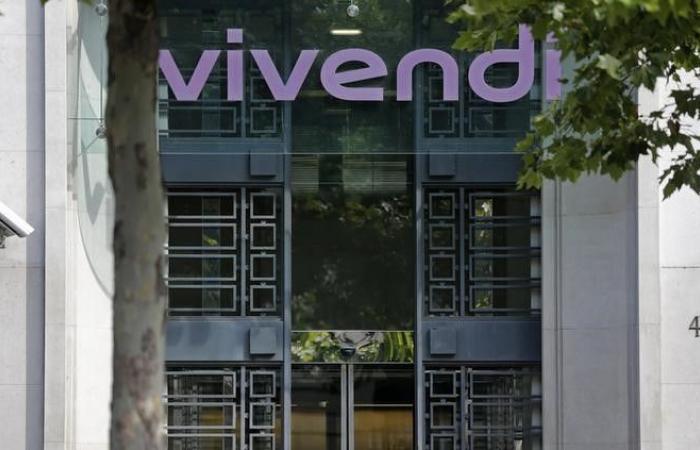London (awp/afp) – Complicated first day of trading for Canal+ on the London Stock Exchange: the stock fell by almost 22% on Monday, an entry considered disappointing, but which was partly expected by analysts and the company .
Introduced at 290 pence at the opening, the group’s shares lost 21.93%, to 226 pence, during its first session.
This decline translates into a valuation of some 2.2 billion pounds (2.7 billion euros) on Monday evening, far removed from the most optimistic estimates which suggest a potential value of more than 6 billion euros.
“We expected it, it’s not a surprise,” assured AFP, after the close of the London Stock Exchange on Monday, the financial director of Canal+ Amandine Ferré, for whom the company “really aims over a 2-3 year horizon to see the success of (its) listing.”
Some holders of Vivendi shares are shareholders because the group “is part of the CAC 40”, others “want to keep shares in euros, so we knew that in the first weeks we would have quite a bit of turnover in our portfolio. “shareholders”, adds Ms. Ferré.
Canal+ “did not get off to a great start,” Susannah Streeter, an analyst at Hargreaves Lansdown, put it mildly. “However, IPOs are often marked by volatility during the first hours, first days, or even first weeks of listing,” she notes.
“The volatility was expected,” adds Russ Mould, investment director at AJ Bell. He notes that “certain investment funds which held Vivendi may be restricted to shares listed in France and are therefore forced to sell Canal+ securities”.
“It’s common for spinoff stocks to experience fluctuations in the first few days when an independent company goes public, as the investors who inherited the stock decide whether to stay or leave,” he adds. he.
Canal+’s entry into London follows the decision of its parent company, Vivendi, to split its activities, in order “to create value for all shareholders”, according to Yannick Bolloré, chairman of the giant’s supervisory board. French media and publishing company Vivendi.
The fall compared to the introductory price is all the more difficult for Canal+ as the other entities resulting from this split were more successful in their debut: Havas remained stable in Amsterdam and Louis Hachette Groupe climbed 27% in Paris.
The arrival in London of Canal+, which constitutes “a real blow” for the British market, according to Susannah Streeter, is supposed to bring a breath of fresh air to this stock market which has been losing attractiveness in recent years.
In fact, “we were extremely well received”, affirms Amandine Ferré, for whom the choice of the British location is also dictated by the company’s growth strategy “increasingly in Anglo-Saxon territories”.
Two thirds of subscribers are already outside France and this proportion is set to increase with the public purchase offer launched for the South African television giant MultiChoice, which could precede a secondary listing for Canal+ on the Stock Exchange. Johannesburg.
afp/rp






